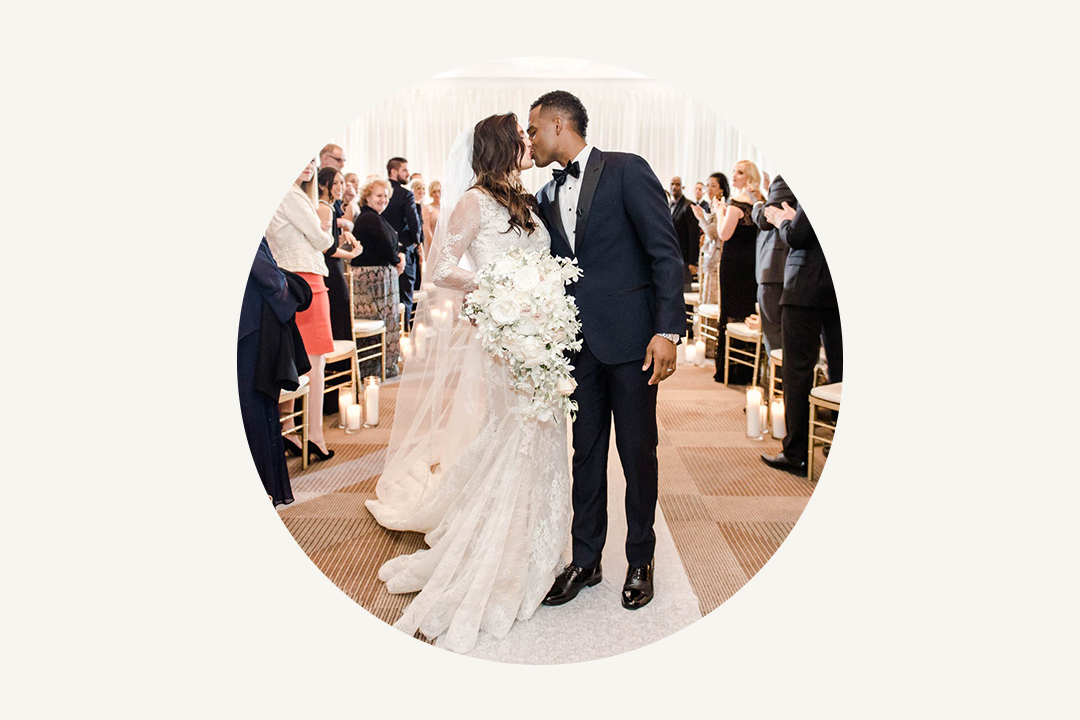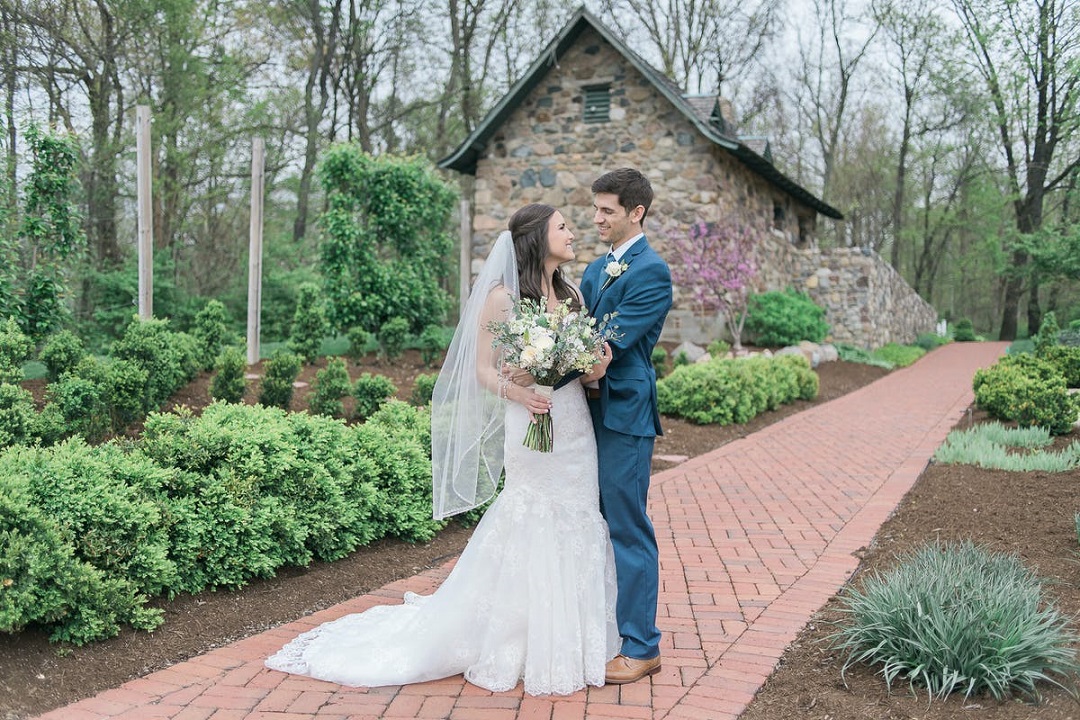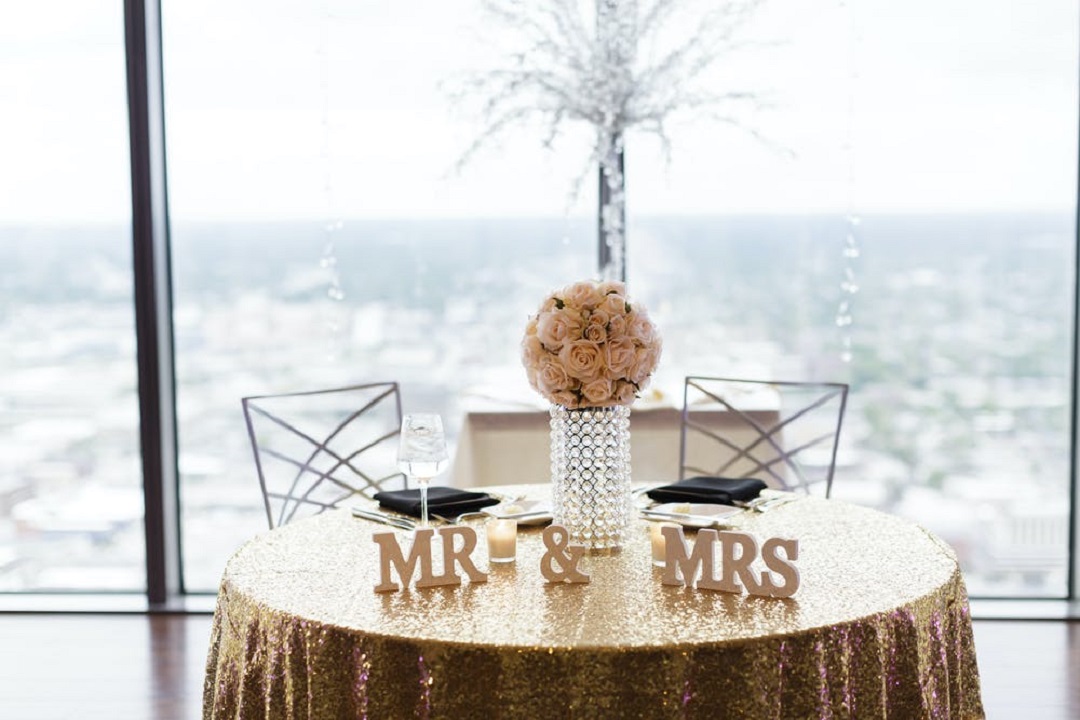- Expert advice/
- Wedding planning 101/
- Wedding planning questions/
- How to Plan Your Sequel Wedding
- Wedding planning questions
How to Plan Your Sequel Wedding
Getting ready to plan a sequel wedding? Check out our top tips and advice with our latest article.
Last updated February 5, 2024

The First Look ✨
- A sequel wedding is a ceremony or celebration that takes place at a later date than your smaller civil ceremony, minimony, or micro-wedding.
- If you're looking to have one, step one is committing to the change of plans, despite any nerves, and planning a second wedding that you’re excited about.
- Update your guests via your wedding website and your guests specific to each celebration via phone call or “Change the Date” cards.
The coronavirus pandemic has caused unprecedented shifts in the wedding industry, as well as many couple’s wedding plans. From postponements to drastically cutting down guest lists, those who had wedding dates set for this year have made various changes to their original wedding plans.
While many of these were something of a bummer, one popular option presents plenty of upsides. Enter: the sequel wedding. If two wedding events sound better than one, read on to learn more about having a sequel wedding and how to plan your own.
What Is a Sequel Wedding?

A sequel wedding happens when a couple decides to have a smaller wedding ceremony (such as an elopement, minimally, or micro-wedding) and then a larger celebration at a later point in time. Simply put, it’s a part two or continuation. Think Joe Jonas and Sophie Turner’s Vegas vows, followed by their larger wedding a month later.
Couples may decide to split their wedding into two parts due to location, a larger ceremony not being financially viable at the time, or if they’re unable to host large groups for public safety—for example, in the case of, say, a global pandemic. That hasn’t always been the case, though. Technically speaking, sequel weddings have been around for quite a while, specifically in cultures where multiple ceremonies are a part of the tradition. Modern couples of all kinds, especially in the time of COVID-19, have taken to this format to accommodate both themselves and their guests.
Whether you have a courthouse wedding, backyard I do’s, or virtual vows, planning a sequel wedding allows you to solidify your union now (or as originally planned), and postpone the rest. If organizing two weddings, let alone one, sounds intimidating, fear not. Changing any part of a wedding can be challenging, but by keeping a few key things in mind, planning a second wedding is completely manageable. Let’s review how to plan your sequel wedding so that you can create the (second) wedding of your dreams.
Commit to the Plan
First thing’s first: If you’ve decided to have a sequel wedding, you need to commit to it. If you’d originally planned on one wedding ceremony, you’re probably feeling apprehensive. Unless you’re close with other couples in your position, chances are that you don’t know anybody who’s had to overcome the unique hurdles you have, and will, face(d) for your wedding celebration. Understandably, this can be frustrating when you probably feel like you should be enjoying much of your wedding planning process.
However, committing and being dedicated to your new plan will allow you to refocus and look to the future. Although you may be tempted to rush, we highly recommend setting aside time to find or create a sequel wedding option that you and your spouse are truly excited about. Whether you hire a wedding planner or do it all yourself, take some time to plan out your multiple ceremonies so that you logistically work out your dream wedding. Take the positives into accounts—such as more time to celebrate and more ways to personalize—and own the change in plans.
Organize Your Budget
For those wanting to have a small legal ceremony followed by a larger celebration at a later date, your financial bottom line shouldn’t look much different than if you were to have a complete one-day event. If you decide to relocate your ceremony from a venue to the courthouse (or even your backyard), you might even come in under budget. However, if you’d prefer both weddings to be relatively the same, it’s easy to go over. To avoid the latter, keep the following budget tips top-of-mind throughout the planning.
- Set a total budget for both events. From there, decide how much of it you want to go towards each part. These numbers may change as you set things in stone, but make it a goal to stay around the numbers you originally set.
- Decide on your priorities for each event. This will help you decide exactly what money should go where (plus, it’ll make each event feel distinctive). For example, if a catered meal and open bar are a must for your sequel wedding, will you be okay with a more low-key meal after your smaller first wedding? List out your top wants for each event (including the cost of each, if you know it) and move things around until both meet your total budget.
- Consider your guests’ budgets. Wanting both sets of parents to attend both events doesn’t mean that everyone will be able to afford a new outfit for each one (even if you can). The same could be said for transportation, hotel stays, and similar. Take your guests’ financial limitations into account when creating your budget and the itineraries for each day.
Contact Your Vendors
As soon as you’re set on a sequel wedding and have an idea of your new budget, you’ll want to reach out to your vendors. Revisit your contracts with each of them and ask about their postponement policies if you’re unsure of anything. Once you’re clear on policies, refer to your top wants for each wedding and make a final decision on which you want at the first ceremony and which will better serve the latter. Do so as quickly as possible to ensure that your new date is available—remember, plenty of other couples are having to postpone or plan a second celebration, too. This is equally important if you’d like a vendor to be present at both.
Create Separate Guest Lists
Deciding on your guest's lists could be as simple as keeping your original list for the second wedding and inviting only immediate family to the first. Perhaps there’ll be some more overlap and you’ll choose to also invite close friends to the smaller of the two. In any case, you need to be clear on who will be attending either. Start with the first event and reach out to parents, siblings, and friends who you’d like to have present. Make sure those guests are available, healthy, and comfortable with attending. Also keep in mind that your civil ceremony can involve just you, your significant other, and your children (if you have any). A great benefit of having two separate events is that you can make the former as intimate as you’d like, without excluding anybody in the end.
Inform Your Guests
Once you’ve finalized your vendors and both guest lists, next on your to-do list is to update the guests of your new plans. Seeing as it’s a time of great uncertainty for most people, they’ll appreciate being kept in the know as often as possible. We suggest first using your wedding website to make immediate announcements to your general guests since updating is instant and keeps everyone as up-to-date as can be.
As soon as you’re sure that your original wedding plans are canceled, post an announcement saying so and for your guests to stay tuned for more updates. From there you can reach out to each guest list separately, either to inform the more intimate list of the new, smaller plans or the larger list of the postponed celebration. For the latter, you can even send our Change the Date cards or Reception Only-style invites (in fact, we recommend it). If you’re choosing not to have a ceremony at your sequel wedding, opt for wording like:
“WE DID IT! First Last and First Last were married in a private ceremony in Location on Wedding Date. Please celebrate with us at our reception on June 10th, 2021 at 7 p.m. 123 Street Name City, State Please RSVP by October 19th.”
“First Last and First Last invite you to their wedding celebration party! Saturday, June 10th, 2021 at 7 p.m. 123 Street Name City, State Please respond by October 19th by mail or online.”
Iron Out the Details

All that’s left to do now is figure out the details—what you’re going to wear and how you’d like each celebration to be distinctive, but overall part of the same big wedding celebration. You could do the former by saying your heartfelt vows at the smaller ceremony and keeping your prequel wedding ceremony short to prioritize an epic party. On the other hand, you can do the latter by including photos and video from your minimum in your second wedding. We also love the idea of replacing the second round of vows with a speech about married life since your smaller wedding. In the end, it’s all about figuring out what’s important to you each day and making those things a priority.
While having to change your wedding plans can be stressful and a letdown, consider a sequel wedding the opportunity to have not one, but two very special days. Prioritizing everyone’s health and attendance is sure to be appreciated and will allow you to plan the wedding you always wanted—just a bit further into the future.
- Expert advice/
- Wedding planning 101/
- Wedding planning questions/
- How to Plan Your Sequel Wedding
Find even more wedding ideas, inspo, tips, and tricks
We’ve got wedding planning advice on everything from save the dates to wedding cakes.
